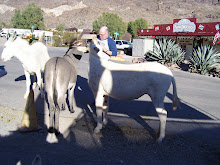Perhaps the most remarkable part of all that has been written about Ernie Harwell in the last 36 hours is where the plaudits have come from.
It is understandable that those of you who grew up listening to Ernie describe the Tigers in the 60s and 70s felt sad when we heard of his death Tuesday night. But the amount of lofty prose written by publications all over the country is truly staggering.
The national writers got to meet Ernie when the Tigers came to their town ... or they visited Detroit. In some way, I suspect they envied us who had him for 162 games a year. It didn't seem to matter if it was the World Series champs of 1968 and 1984, the teams that nearly got there in 1967, 1972 and 1987 or the rough years in the mid 1970s when the team regularly lost 90-100 games a season. Ernie stayed the same, telling the tales of the ball club in his warm, southern, gentle style.
Funny what you remember. In 1970, Detroit had a SS named Ken Szotkiewicz. He had a brief, undistinguished career, finishing with a not-very-lofty .107 career batting average. But I have a vivid memory of one night when he hit drilled one into the seats against the A's at Tiger Stadium. "Socko lived up to his name on that one," Harwell said, describing a ball that went into the lower deck in right field.
I remember another night in the fabled year of 1968. The Tigers trailed Baltimore in the bottom of the ninth by a run with a runner on base and two outs when Tom Matchick, another weak-hitting shortstop, lofted a fly ball to deep right. Harwell pauses as the ball is in flight (probably wondering himself if the ball was really going to reach the stands) and then breaks into as excited a tone as you would ever hear out of him as he says, "And it is a home run for Matchick and the Tigers win the game." It is the greatest home run call I have ever heard.
Another night, Gates Brown capped a wild four-run, ninth inning rally for a doubleheader sweep of Boston. Ernie simply said, "What a mad mob it is here tonight."
He was a man of few words. But he made them all count. Perhaps that is why so many non-Detroiters loved him so much. Ernie knew that less is sometimes more. You didn't need to go into detail why it was a bad play to go to third base on a ground ball to shortstop. You just needed to tell us what happened. He did so without damning the miscreant. That's a real gift.
As I wrote in a piece on MinnPost.com, the beauty of growing up on Tiger games was the feeling Ernie was personally broadcasting the game to you. He didn't try to sugarcoat bad baseball. He also didn't overdo it when the team was going great. No, he felt he was lucky to be at the ballpark telling us what was going on. And it showed.
So, I don't necessarily mourn his passing. Ernie had told us he was ready to go and take on his next challenge. But I am not worried he will handle it. After all, anybody can handle calling the games of the 1996 Tigers (who went a miserable 53-109) can take on anything.
Thursday, May 6, 2010
Subscribe to:
Post Comments (Atom)


No comments:
Post a Comment